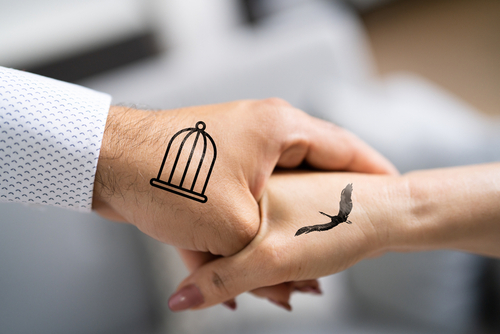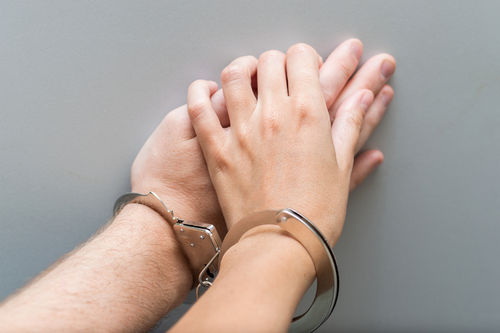Codependency is a condition characterized by excessive reliance on another person. This can be a family member, a close friend, or a romantic partner. Romantic relationships tend to make this type of behavior particularly evident, as one partner’s emotional and mental well-being becomes completely dependent on the feedback they get from their significant other. It’s frequently characterized by a lack of boundaries, poor communication skills, and difficulty expressing emotions.
Codependency can affect anyone, regardless of age, gender, or background, and it can cause significant distress and disruption to their daily life. Despite not being an official mental health diagnosis, it can be quite a severely debilitating issue that requires identifying the symptoms, recognizing how they manifest in everyday life, and determining the necessary steps to overcome them. It’s no wonder that many people are seeking help in intensive workshops of codependency retreats in California.
This intricate pattern of behavior can sometimes be difficult to identify, particularly in long-term relationships, as it feels natural to want to help and support the people we care about. However, true codependency can lead to unhealthy or even destructive relationships that cause harm to both partners. Recognizing the symptoms is essential to finding appropriate treatment and support. Only by identifying and understanding them can we begin cultivating self-awareness, building healthier relationships, and leading a more fulfilling life.
What Are The Core Symptoms Of Codependency?

The symptoms of codependency can be difficult to spot as they’re easily confused with deep devotion and care towards one’s partner. That’s why it’s necessary to peel away the upper layers and see what lies underneath. Usually, it’s a mixture of unresolved emotional and mental health difficulties that could be the result of various early childhood experiences or later-life trauma. If you suspect that you’re dealing with codependency in your life, look for one or several of the following symptoms.
Low Self-Esteem
Low self-esteem is one of the main symptoms of codependency. Codependent individuals often have a distorted sense of self-worth and may feel like they are not good enough. They usually seek validation and approval from others to feel better about themselves, leading to a cycle of people-pleasing and neglecting their own needs. As a result, codependents may have difficulty making decisions, being assertive, and expressing their own opinions.
Neglecting One’s Own Needs
This is a common symptom of codependency, as codependent individuals tend to prioritize the needs of others over their own. They might feel like all their worth and value come from being needed by others and taking care of them. As a result, they tend to neglect their own needs, wants, and desires. This can lead to a mixture of resentment, burnout, and even physical exhaustion.
In addition, codependent individuals generally struggle to identify and communicate their needs or even feel guilty or selfish when they try to prioritize themselves. This can lead to a loss of self-identity and a lack of personal fulfillment and contribute to feelings of anxiety, depression, and low self-esteem.
Difficulty Setting Boundaries
Another hallmark of intensive codependency is difficulty setting and enforcing boundaries. Codependent individuals tend to feel responsible for other people’s feelings and behaviors and might go to great lengths to avoid conflict or upsetting anyone. By doing so, codependents often sacrifice their needs and desires to maintain supposed harmony in the relationship. In some cases, they might even resort to controlling or manipulating others to feel safe and secure.
Enabling Behavior
This is another typical symptom of codependency. Enabling others by taking responsibility for their problems, making excuses for them, or covering up their mistakes is one of the ways to maintain the idea of a harmonious relationship. Codependents might also feel the urge to rescue or fix others, even when it’s clearly not in their best interest. This perpetuates the cycle of codependency by satisfying their need to be needed, which translates to feelings of being valued and validated.
Control Issues
Codependent individuals frequently struggle with control issues and the strong urge to micromanage or manipulate situations to feel safe or secure. They might also struggle with trust issues in circumstances when they don’t believe that others can care for them or make reasonable decisions on their own. This might go as far as feeling like they need to be in control of every aspect of their lives and relationships, inevitably leading to high stress levels and anxiety when things don’t go according to plan.
One of the obvious examples is when you allow yourself to control something about another person or you allow them to control something about you. It could be something seemingly unimportant, like how you dress, or something more significant, like who you’re friends with and how you spend your time.
Difficulty Expressing Emotions
Finally, codependent individuals may have significant difficulties identifying their emotions and expressing them in a healthy way. They frequently suppress feelings to avoid conflict or even feel that their emotions are not valid or important. This can create lasting emotional numbness or detachment and make forming deep and meaningful relationships particularly complicated. Codependents also struggle with intimacy, as they might fear vulnerability or rejection.
Other Possible Signs To Look Out For
While all the symptoms described above present the core features of codependency, some other signs could also indicate a codependent pattern of behavior. These can include:
- Chronic people-pleasing and excessive compliance.
- Difficulty making decisions without seeking validation from others.
- A constant need for external validation and approval.
- Fear of abandonment or rejection.
- Tendency to attract or be attracted to people with addiction or mental health issues.
- Chronic self-criticism and negative self-talk.
- Holding on to feelings of resentment or bitterness.
What To Do If You Need Help Dealing With Codependency Issues?

Codependency is a complex condition that can have intensive and far-reaching effects on your daily life. For example, it could prevent you from forming healthy relationships or being fully present and participating in existing ones. True intimacy can be hard or nearly impossible to achieve in such cases. However, by identifying and addressing the core symptoms of codependency, individuals can work towards building healthier, more fulfilling relationships with themselves and others.
Various codependency programs, including gender-specific ones like women’s retreat codependency workshops, can provide a safe and supportive environment for those struggling with this complex issue. Such programs typically offer a range of activities, like individual and group therapy, mindfulness practices, and educational workshops designed to help participants gain insight into their codependent behaviors and develop healthier relationship patterns.
The main benefits of participating in such programs include increased self-awareness and self-esteem, improved communication skills, and a greater sense of personal empowerment. Additionally, they provide an opportunity to connect with others experiencing similar challenges, which can help reduce feelings of isolation and promote a sense of community. With the help of intensive codependency programs and retreats, both men and women can learn to break free from damaging patterns and create more fulfilling relationships with themselves and others.
Where Can I Find Effective Codependency Programs Near Me?
Healing from codependency is attainable. It does require some patience, time, effort, and in some cases, professional help, but coming out on the other side of it might feel like being given a second chance at a life filled with amazing opportunities. You can choose to work on your healing with PIVOT’s relationship advocates through individual sessions.
Alternatively, if you feel like a group setting might give you the boost you need through the sense of community and togetherness, you can participate in Glass House retreat workshops led by our experienced coaches. By unpacking the connections between the emotions and behaviors that were holding you back, you can learn to see them in a new light leading you toward loving, trusting relationships.

